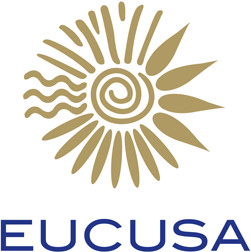EUCUSA Trust Check
To be successful as a company, trust is needed as a core quality and the basis of a sustainable healthy organizational culture. A trusting work environment contributes to employee retention and is an essential component of leadership development.
Your advantages






“Trust“ – EUCUSA’s definition
“Trust is the courage to show vulnerability in order to reduce complexity.“
Model for measuring trust culture
The EUCUSA model assumes that trust can be represented by four main components (dimensions). Four subcomponents (aspects) each represent a main component and describe it more concretely from different perspectives. These 16 components are scientifically based and formulated for practical evaluation.
- Responsibility
- Honesty
- Competence
- Clarity
- Availability
- Authenticity
- Dealing with errors
- Encouragement
- Agreement quality
- Perseverance
- Support
- Future readiness
- Openness
- Security
- Respect
- Availability
From the quantitative results of an (anonymous) employee survey, it can be clearly derived which main components or subcomponents should be worked on, but also where there are already very good results that serve as best practice example and can be learned from. In this way, a key figure-based company overview can be generated quickly and efficiently.
Qualitative responses (in addition to the quantitative evaluation) in the form of anonymized comments are also often very informative and can provide important added value for interpretation. Furthermore, interviews or focus groups can bring to light background knowledge about what exactly needs to be worked on to optimize a culture of trust.
Variants of trust surveys
- as a separate survey if trust has been established as a company value
- as a trust index within an employee survey
(e.g. if trust is defined as a dimension of an employee survey) - as a single dimension (z.B. fairness) as part of an employee survey
We would be happy to discuss with you, which option serves best for achieving your individual goals.
More about employee surveys in general: EUCUSA employee surveys
Instruments for the EUCUSA trust check
Depending on the intended use, there are currently two variants of questionnaires to choose from.
- Trust surveys on corporate culture: www.organization-trust-check.com
- For the topic of “trust in leadership” in particular: www.leadership-trust-check.com
We would be pleased to discuss with you all options of individual use and result reports.
